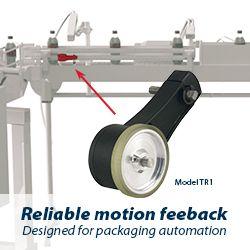Roboteq Launches Raspberry PI-based Robot Navigation Computer project on Kickstarter
Roboteq launches a kickstarter project aimed at creating an amazingly powerful Robot Navigation Computer for its low price and size, and targetting applications in sea, land or airborne unmanned robotics vehicles applications, as well as in more traditional automation and machine control systems
Scottsdale, AZ May 03, 2013
Roboteq, Inc (http://www.roboteq.com) launched a kickstarter project named RIO (for Raspberry IO) and aimed at creating an intelligent I/O card that stacks over the $35 Raspberry PI Linux Single Board computer. The RIO card includes a rich set of I/O and connectivity features. The card can also be fitted with an optional ARHS module, including 3 axis accelerometer, 3 axis gyroscope, 3 axis magnetometer and a fusion algorithm for precise attitude and heading measure. Project details are found at http://kck.st/15KlxBm.
Roboteq is the industrial partner of this project and will manufacture, market and sell the RIO card worldwide. The RIO card and the Raspberry PI combine to create an amazingly powerful embedded Robot Navigation Computer for its size, power consumption and price. Added to Roboteq's extensive offering of motor controllers, the RIO-based computer opens a world of applications in sea, land or airborne unmanned robotics vehicles applications, as well as in more traditional automation and machine control systems.
The RIO card includes a DCDC power converter, allowing the Raspberry PI to be powered from any DC source up to 40V. RIO also includes 13 inputs that can be configured as Digital inputs, 0-5V Analog inputs with 12-bit resolution, or as Pulse inputs capable of pulse width, duty cycle or frequency capture. Eight Digital outputs are provided for driving loads up to 1A each at up to 24V.
The board features several communication interfaces, including: RS232/RS485 serial interface for connecting to standard serial devices, a TTL serial port for connecting to Arduino and other Microcontrollers not equipped with RS232 transceiver, and a CAN interface
RIO includes a 32-bit ARM microcontroller for processing and buffering the I/O, and managing the communication with the processor on the Raspberry PI module. The processor can be configured to perform, on its own, a long list of conversion, capture, filtering, or conditioning on the I/O, so that the PI processor is relieved of these functions. On the Linux side, RIO comes with drivers and function library for configuring and accessing the I/O quickly, and seamlessly exchange data with the Raspberry.
Roboteq will offer the RIO card as a separate I/O card, or as a fully assembled and configured embedded Robot Navigation Computer.
About Roboteq
Founded in 2001 by experts in embedded computing and power electronics, Roboteq's mission is to develop products and technologies that allow novices and professionals alike to build innovative, flexible and affordable mobile robots. Roboteq controllers are now used in over 2000 original robot designs around the world.
Featured Product

Model TR1 Tru-Trac
The Model TR1 Tru-Trac® linear measurement solution is a versatile option for tracking velocity, position, or distance over a wide variety of surfaces. An integrated encoder, measuring wheel, and spring-loaded torsion arm in one, compact unit, the Model TR1 is easy to install. The spring-loaded torsion arm offers adjustable torsion load, allowing the Model TR1 to be mounted in almost any orientation - even upside-down. The threaded shaft on the pivot axis is field reversible, providing mounting access from either side. With operating speeds up to 3000 feet per minute, a wide variety of configuration options - including multiple wheel material options - and a housing made from a durable, conductive composite material that minimizes static buildup, the Model TR1 Tru-Trac® is the ideal solution for countless applications.
